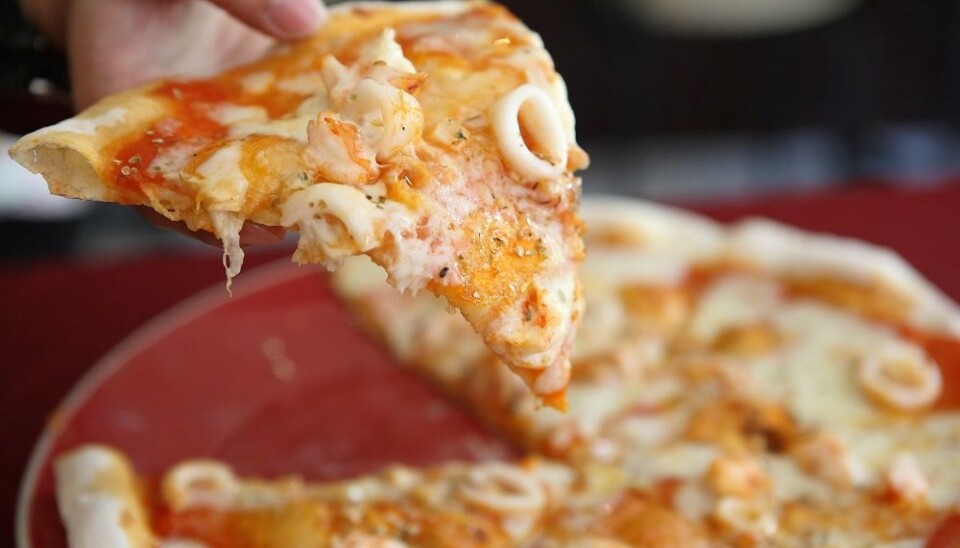An article from Norwegian SciTech News at NTNU

Pizza may be worse for you if you have diabetes
The heart has to work harder in the hours following an unhealthy meal, especially if you have type 2 diabetes.
Fast food contains a lot of sugar and fat. But even worse, it causes blood sugar and fat levels (glucose and triglycerides) to skyrocket.
Previous studies have shown that vascular function is impaired in the period right after you eat unhealthy foods, but there have been fewer studies of how the heart reacts.
Now a study by NTNU’s Cardiac Exercise Research Group suggests that a single meal of fast food stresses the heart, and that the negative effect is greater for patients with type 2 diabetes than in healthy individuals.
“Both the healthy and diabetic participants experienced changes in their diastolic heart function within half an hour after they had eaten. The heart needed to work harder to fill with blood in the relaxed diastole phase. While this effect was reversed after four hours in healthy participants, the effect lasted the longer for diabetics,” says the study’s first author Siri Marte Hollekim-Strand.
Study method
Ten individuals with type 2 diabetes and ten healthy individuals participated in the study. They were all the same age and had similar BMIs.
All 20 participants ate a whole Dr. Oetker mozzarella pizza on three different occasions: 16-18 hours after they had completed either a workout with intensive 4 × 4 intervals, or a workout of moderate intensity or no training. The researchers measured participants’ heart function with ultrasound both before the workouts and before the meal, and then again 30 minutes, two hours and four hours after the meal.
“The heart rate also increased after ingesting fast food, but here no significant differences between groups resulted. The pre-exercise workout (or none) had no impact on the results, nor did the training intensity,” says Hollekim-Strand.
Longer time to normalize
The researchers also observed a temporary reduction in systolic blood pressure two hours after the pizza meal in diabetic patients but not in healthy participants.
A sudden drop in blood pressure is common after eating for people with diabetes, and the reduction observed in the study may be an early sign of this postprandial hypotension.
In contrast to the healthy participants, the resting pulse of diabetics was still increased four hours after the meal. Glucose levels increased in both groups, but took longer to drop back down for participants with diabetes.
Triglyceride levels did not change differently in the two groups, but were initially somewhat higher in the diabetics. Cholesterol and inflammatory marker CRP levels did not change in either group as a result of the meal.
“The study indicates that fast food has a greater impact on diastolic heart function if you have type 2 diabetes,” says Hollekim-Strand.
She and her research colleagues speculate that this may be an early sign of diastolic dysfunction, which is a common condition in diabetes. They emphasize the need for more studies to look at the acute effects of food on cardiac function in type 2 diabetes, and how exercise may affect this response.






























